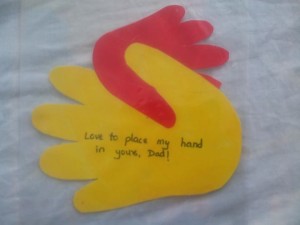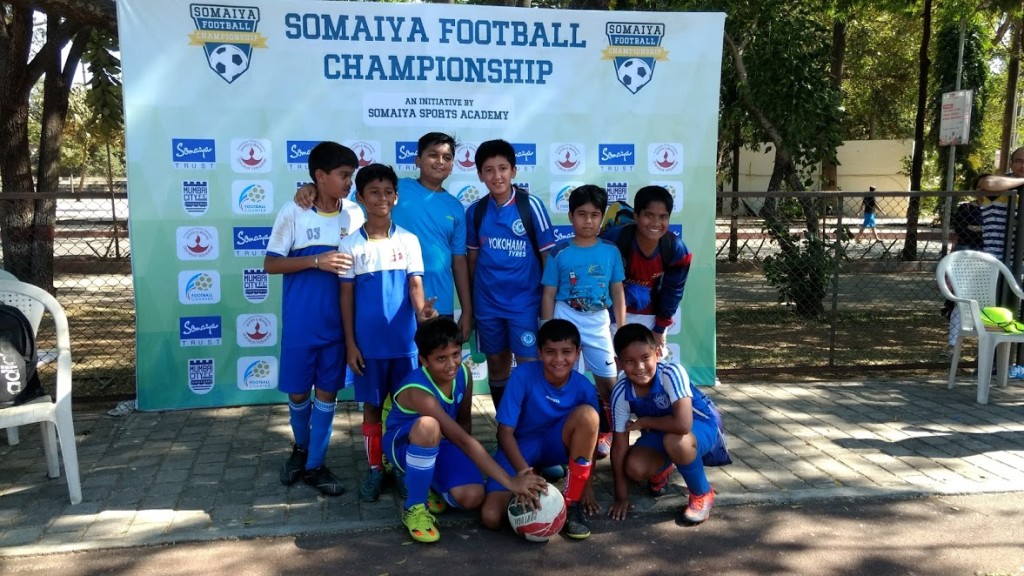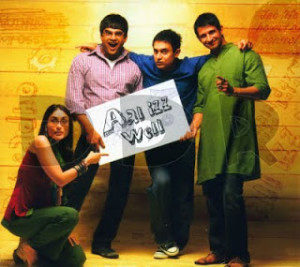“A person who doubts himself is like a man who would enlist in the rank of his enemies and bear arms against himself” – ALEXANDRE DUMP
Category: Learn
God has been kind. If not ….
As I woke up this morning, the first thing I learned was about my friend Parvinder Singh, meeting with an accident yesterday, on his birthday, 18th July. We are all so happy for Parvinder that he was unhurt and is doing fine.
God has been kind. If not …
One would recall the true life story, I shared about my dear friend, Dr. Mitesh Shah. Mitesh missed out on our “Fab Four – Sachin, Amit, Mitesh , Jayesh” trip to Tirupati in 2009, to seek blessings from the Lord for our new borns. His father-in-law was diagnosed with a cardiac problem and Mitesh dropped out from the trip just an hour before our departure from Mumbai. A day later, exactly at the time when the three of us were at the Tirupati temple, Mitesh was admitted to a cardiac hospital – just in time to be taken care of.
God has been kind. If not …
Not many of my friends know, that at the age of 9 when I was in Class IV, I was diagnosed with a brain tuberculosis. The prayers, support and good wishes from family, friends, well wishers and doctors helped me recover in quick time. Dr. Ashok Hazari, our close relative and family doctor has been supporting the family right throughout the difficult times.
God has been kind. If not ….
I would like to conclude by sharing what could have possibly been life’s greatest regret. On 23rd May, 2015, Maahir and Shourya were playing in the building complex till well past 11 in the night. As always, either we would get them or someone would drop them home. It was not to happen that night. At around 11:30, I had a vision that Shourya has badly hurt himself . Seconds later, Maahir rushed into the house with Shourya’s bleeding and roughed up right hand. Shourya’s hand was trapped in the collapsible door of the moving lift causing a severe crushing injury – pulled off just in time.
It’s been a difficult two months for our six year old, with the many visits to Amit’s hospital – the first one within minutes of the incident, well past mid-night. Every time Amit opened the bandaged right hand for the painful medical processes, we would pray for things being fine.
Under the watchful eyes of my buddy, 
God has been kind. If not ….
PS – Our close family friends, two brothers, owned a popular fast food restaurant. Life presented them with many challenges, but with their ever positive and “never say die approach”, they did well for their families, inspite of critical heath issues. While the elder one (50) was on dialysis for the last 7 years, the younger one (47) too had to undergo the procedure on alternate days for the last 2 years. Both brothers had come to terms with life – going about their work, family and social responsibilities like all of us do. In January, the younger brother passed away within a month of a brief spout of ill-health. The elder brother had just begun to plan for the two families, only to be gone – 21 days later, after he developed some complications during the dialysis process.
Count your blessings.
God Bless
Dr. Kalam’s Posthumous Advise To The Parliamentarians And Politicians Of Today.
I am glad that the government has finally initiated action on building the memorial over the tomb of our late President Dr. A.P.J. Abdul Kalam, at his hometown in Rameshwaran. Having read Dr. Kalam’s works and being professionally associated with organizations like ISRO and VSSC, I personally feel that it was the humility and simplicity of the man while he was alive, that has so far deprived him of his rightful place in the history of India.
While reading Dr. Kalam’s book “Ignited Minds”, one is amazed by the vision of this remarkable scientist, scientific administrator, turned President of India. His views on science, development, potential of India and it’s youth, spirituality, culture demonstrate his deep understanding on matters of critical importance, based on many personal observations and thorough analyses. His remarkable ability to translate his thoughts into simple messages and lessons for a nation, is the reason for every Indian to read Dr. Kalam’s works. As a tribute to India’s “Missile Man”, “People’s President” , “Bharat Ratna”, I summarize below his views on the role of parliament in development of the nation. The following text, written in 2002 seems to be his posthumous advise to the parliamentarians and politicians of today.
“The needs of a nation’s people are bigger and much more important than any other considerations. We need to realize that missions are always bigger than organizations, just as organizations are always bigger than the individuals who run them.
The mission of Parliament is that it has to be alive and dynamic over issues vital to the existence of our very nationhood. Our freedom did not come as a gift. The whole country struggled for decades to achieve the first vision of independence, so we have to protect it. To preserve this freedom from intruders and others who would compromise it is our bounden duty and not a matter of choice and convenience. No ideology is above the security and prosperity of our country. No agenda is more important than harmony among the people.
For great men, religion is a way of making friends; small people make religion a fighting tool.
Three factors are invariably found in a strong nation: a collective pride in its achievements, unity and the ability for combined action. It is because our sense of mission has weakened that we have ceased to be true to our culture and ourselves. If we come to look upon ourselves as a divided people with no pride in our past and no faith in the future, what else can we look forward to forward to except frustration, disappointment and despair?
For a people and a nation to rise to the highest, they must have a common memory of great heroes and exploits, of great adventures and triumphs in the past. What we need today is a vision for the nation which can bring unity. Leaders must ensure that the younger generation is better than them and not subject them to circumstances that will stunt their growth.”
Life at Half Time
As another year of life goes by, the thought and realization that you are mid-way through life begins to dawn upon. Getting out of the thirties doesn’t hit you as much as the thought of entering into the forties. It seems to be the time, when life begins to question you –
What have you achieved?
What have you contributed?
Have you made the difference?
And above all – where do you go from here?
At “Half Time”, you need a “Time Out”. As we continue our journey in search for the answers – it’s time to reflect on the many gifts of life.
Thank God
One is thankful to God for his blessings of a loving and caring family, encouraging friends, inspiring teachers and supportive colleagues. “If I have seen far, it is because I have stood on the shoulders of giants.”
Set Goals
What we are today comes from our thoughts of yesterday, and our present thoughts build our life of tomorrow. Our life is the creation of our mind. Set Goals. “Whatever you vividly imagine, ardently desire, sincerely believe and enthusiastically act upon, must, inevitably come to pass.”
Never Give up
The journey of life has to be in pursuit of excellence. No matter how good you are, you can always get better – and that’s the exciting part. Never, never, never…never give up. “Koshish karne waloon ki kabhi haar nahin hoti.” (The one who tries, never fails).
Be Equanimous
Life is a journey – of ups and downs, of joys and sorrows. Life’s greatest challenge is learning to be equanimous in both pleasure and pain. The true measure of progress is our state of consciousness and the change this brings about in our thoughts, behavior, attitude, actions and responses. “Adversity introduces a man to himself”.
Life Comes Full Circle
Over the many years, one has realized that life is a great equalizer; what you give is what you get. Life is too long. In the end, life comes full circle. Circumstances and people will come back. Remember, “There is no witness so terrible or no accuser as powerful as conscience.”
Time is Precious
Money is a by-product of hard, honest work. Health is wealth. Our greatest gift and most precious asset is “Time”. And, while we may want to believe that we are at half time, none of us knows when the Referee decides to blow the whistle.
Have Faith
We often regret when things don’t happen as we plan them, only to realize later that it all happens for a reason. There is a popular Malayalam quote, “Njan pathi, daivam pathi” – it means, I need to do my half, the rest shall be done by the Lord.
Where Do You Go From Here?
Our life is on the line every single day. Each day, we script our story – through thoughts, words and actions. Every day we build our legacy, and everyday our eulogies are being written.
Going forward, one prays for good health, peace, and prosperity for self, friends, family; knowledge and values for children; and seeks blessing to be a good human being, a leader with the ability to touch, move, inspire and make a difference to the lives of those around. “Life is not about keeping or settling scores. It’s about understanding people the way they are. Above all, it is about choosing to use our life to touch someone else’s in a way that could not have been possible otherwise.”
“Success is in the big things. Happiness is in the small things. Meditation is in nothing. God is in everything.”
Life has been a Blessing
Life has been a blessing
A blessing of a loving family,
A blessing of inspiring teachers and mentors,
A blessing of friends who have always been encouraging and supportive,
A blessing of colleagues and team members.
A blessing of good health,
A blessing of peace,
A blessing of prosperity,
A blessing of education and knowledge,
A blessing of spirituality,
A blessing of equanimity,
A blessing of positivity.
A blessing of mother nature,
A blessing of air, water and food,
A blessing of India,
A blessing of home,
A blessing of work,
A blessing of books.
A blessing of the many goals that manifested for the good.
A blessing of hard work, persistence and perseverance.
Life has been a blessing of being loved and cared for,
God has been kind,
Life is Beautiful.
Life’s purpose has been to touch, move, inspire and make a positive difference,
God Bless Life.
Becoming a Little Better – Each Day
“You have to apply yourself each day to becoming a little better. By applying yourself to the task of becoming a little better each and every day over a period of time, you will become a lot better,” John Wooden, basketball coach.
Dangal – Being A Parent Coach
“We are here to play, not to bully,” called out the soccer club team owner, as he pulled out Maahir from the Somaiya Soccer Championship game, just minutes after the kick-off. Maahir and one of his team mates, made some disparaging statements to an opposition team player, during play. This was the second game for the afternoon. The first game was comprehensively won, 3-0, by Maahir’s team, Soccer Cubs. An hour later, they lost the second, 0-10.
 Maahir’s Team – The Soccer Cubs, after winning the first game 3-0
Maahir’s Team – The Soccer Cubs, after winning the first game 3-0
Maahir was amongst the best player in his team. In the winning game, he fired the ball like a bullet, from the mid-field, right into the nets. There was little that the goal keeper could do, as he watched the ball sail over his head. An outstanding goal, orchestrated by the coach instructing from the side lines, superbly executed by the player. This proud moment for the parents was soon to be overshadowed by the act of indiscipline. Maahir had to sit out through the second game, even as his team players requested the team owner to get him back on the field.
That afternoon we played the role of parent-coach, Purvi and I had a serious conversation with our 10 year old. It was good to see him quickly understand what he had done wrong. He realized the price his team had to pay for losing one of their best players. One mistake – and he was out of the team.
Sports can be a great teacher, for those who are willing to learn. Exactly a week later, we re-lived and added to the lessons learned on the field, as we watched the Aamir Khan starrer, Dangal. It was easy for the children to pick on the lessons of discipline and hard work (daily 5 a.m. training regime for Geeta and Babita), giving up on what you like (food cravings), being prepared to do whatever it takes (short hair-cut for the girls, non-vegetarian diet), serious and hard preparations (school girls competing against the big boys), fighting back from failure, perseverance, and more. The hard part was for us, the parents, to realize that there was plenty in it for us to learn as well. Every parent needs to play the role of a parent-coach like Mahavir Singh Phogat for his Geeta and Babita,
It is imperative for parents to share with children the importance of setting goals at an early age – so long as children understand their importance and are willing to work towards their realization. Maahir wrote his first goal when he was 5, and Shourya drew it up when he was 2.
A loving parent will always face the dilemma of being a taskmaster coach. That said, it is absolutely, necessary for the parent-coach to enforce strict discipline while maintaining an extremely nurturing atmosphere for the children. As a coach, always demand the best preparation and the maximum effort. But when your child experiences failure, teach him that it is not the end of the world. If he loses, tell him that he was just outscored on the day. Hold him by his hand, talk to him and prepare him for his next challenge. Personally, I have been fortunate and blessed to have parents who’ve always maintained the balance.
A parent-coach should instill the importance of hard work, and repeated practice, in pursuit of excellence. He has to raise the bar every time they enter into the arena. “You have to apply yourself each day to becoming a little better. By applying yourself to the task of becoming a little better each and every day over a period of time, you will become a lot better,” said the famous basket ball coach, John Wooden. In the game that he was pulled out, Maahir had lost his opportunity to become better that day. It is important to teach children to love challenges, be intrigued by mistakes, enjoy effort, and keep on learning
A parent-coach needs to be on the sidelines during the game – to guide, correct, cheer and inspire. It makes a big difference. I recall Maahir telling me after a drawn game that I missed out on, “Papa, if you would had been around, I would have definitely scored a goal and our team would have won.” Likewise, I am happy to have Dad around at the workplace – it has made the difference to my life and career.
And finally, a parent coach should share honest and constructive feedback. As Carlos Dweck writes in her book, Mindset, “Praise should deal, not with the child’s personality attributes, but for their efforts and achievements. Children should be appreciated not for their intelligence and talents, but for the efforts, hard work, practice, persistence, and other growth oriented processes.” Words of encouragement and praise should to be carefully timed and chosen. In the film, the father holds on to golden words “Shabash”, in praise of his daughter until she has won an International Gold Medal.
A parent-coach needs to commit undivided time and attention to the children, because, it’s not about coaching them for a game or a sport, or making them good players. It’s about preparing them for life and making them good human beings.
The Temptation to Spend Money
“People spend because the necessities or the enticements are so immediate and the consequences of not saving are so distant. Even when spending is patently dumb, life is often so burdensome that the temptation to purchase a little relief is universal and irresistible.” – James Mullen
Life – The Master’s Plan
As we march ahead in pursuit of our goals, engaging all our knowledge, experience, efforts and consciousness, there shall be moments of truth that will remind that in the end, life will take course as per the Master’s plan.
3 Idiots and the Secret of “All Is Well”
To break this cycle of the unconscious thinking process requires a conscious effort. To do this, we must first consciously identify, through contemplation and self-reflection, the automatic thought programs that run within us. Next, it requires a deliberate effort of observing these thoughts without responding to them. In this way we shall break the chemical responses that are responsible for our habitual behavior, mindset and attitudes. It requires a conscious unlearning of the attitudes and the mindset that we wish to change. Once we have disrupted the automatic programs, we can then re-train our mind the way we want by exercising conscious control over our thoughts

